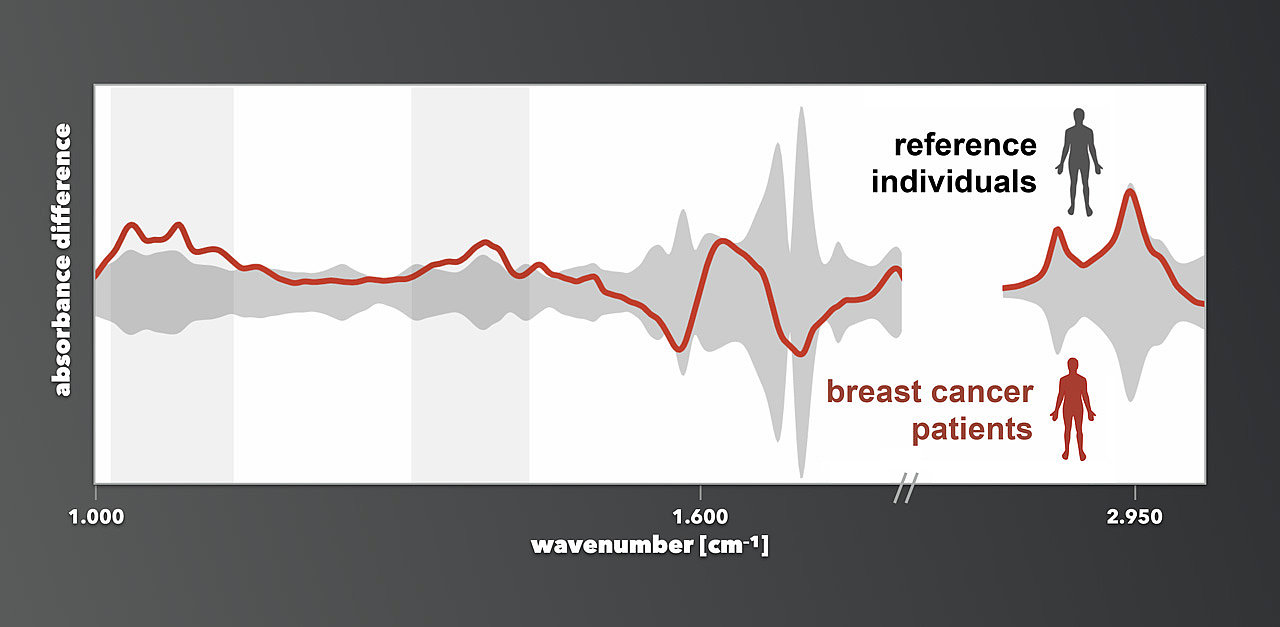Breast cancer screening is currently predominantly based on mammography, tainted with the occurrence of both false positivity and false negativity, urging for innovative strategies, as effective detection of early-stage breast cancer bears the potential to reduce mortality. In a recent publication in the scientific journal “BMC Cancer”, the BIRD team and colleagues from the King Saud University (KSU) and the International Cancer Research Group (ICRG) report the results of a prospective pilot study on breast-cancer detection using blood plasma analyzed by Fourier-transform infrared (FTIR) spectroscopy – a rapid, cost-effective technique with minimal sample volume requirements and potential to aid biomedical diagnostics. FTIR has the capacity to probe health phenotypes via the investigation of the full repertoire of molecular species within a sample at once, within a single measurement in a high-throughput manner. In this study, the researchers take advantage of cross-molecular fingerprinting to probe for breast cancer detection.
Graphic: Kosmas Kepesidis
Original publication: Kosmas V. Kepesidis, Masa Bozic‑Iven, Marinus Huber, Nashwa Abdel‑Aziz, Sharif Kullab, Ahmed Abdelwarith, Abdulrahman Al Diab, Mohammed Al Ghamdi, Muath Abu Hilal, Mohun R. K. Bahadoor, Abhishake Sharma, Farida Dabouz, Maria Arafah, Abdallah M. Azzeer, Ferenc Krausz, Khalid Alsaleh, Mihaela Zigman and Jean‑Marc Nabholtz
Breast-cancer detection using blood-based infrared molecular fingerprints
BMC Cancer (2021) 21:1287
https://doi.org/10.1186/s12885-021-09017-7
a prospective pilot study on breast cancer detection
